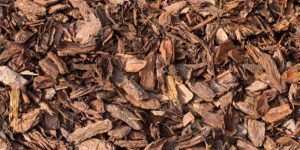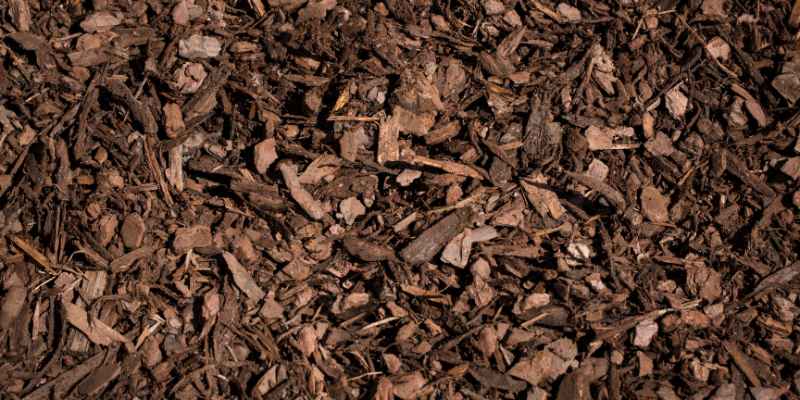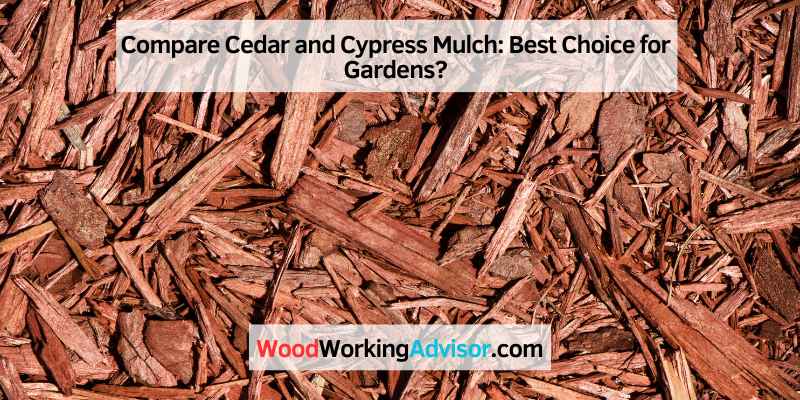Cedar mulch is aromatic and repels insects, while cypress mulch is long-lasting and rot-resistant. Both mulches have unique properties that cater to different landscaping needs.
Gardeners often consider factors such as appearance, scent, durability, and cost when choosing between cedar and cypress mulch. Understanding the distinctions between these two popular mulch options can help determine the best choice for your garden or landscaping project. Let’s delve into the characteristics, benefits, and drawbacks of cedar and cypress mulch to make an informed decision for your outdoor space.
Introduction To Mulching
Mulching is a fundamental aspect of maintaining a healthy and thriving garden. It involves covering the soil with a protective layer of material, which can be organic or inorganic. This practice offers numerous benefits, such as conserving moisture, suppressing weeds, moderating soil temperature, and enhancing the aesthetic appeal of the garden.
Benefits Of Mulch In Gardens
- Conserves moisture
- Suppresses weeds
- Moderates soil temperature
- Enhances aesthetic appeal
Cedar Vs. Cypress: A Primer
When considering the best mulch for your garden, understanding the differences between cedar and cypress mulch is crucial. Both types offer unique characteristics and benefits, influencing their suitability for various gardening needs. Let’s explore the distinctive features of cedar and cypress mulch to make an informed choice for your garden.
Cedar Mulch Pros And Cons
Cedar and cypress mulch have their own set of pros and cons. Cedar mulch is known for its natural insect-repellent properties and pleasant aroma, while cypress mulch is more resistant to decay. However, cedar mulch may be more expensive and harder to find, whereas cypress mulch can sometimes contain harmful chemicals.
It’s important to consider these factors when deciding between the two options.
If you’re looking for a mulch that’s both attractive and functional, cedar mulch is an excellent option. Cedar mulch is a popular choice for gardeners because it provides a range of benefits, but it also has some drawbacks to consider. In this post, we’ll take a closer look at the pros and cons of cedar mulch to help you decide if it’s the right choice for your garden.
Advantages Of Cedar Mulch
Cedar mulch has several advantages that make it a popular choice for gardeners. Here are some of the benefits of using cedar mulch:
- Cedar mulch has a pleasant aroma that repels insects, making it an excellent natural insect repellent.
- Cedar mulch is long-lasting and breaks down more slowly than other types of mulch, meaning you won’t have to replace it as often.
- Cedar mulch is an excellent insulator, helping to keep the soil temperature consistent and protecting the roots of your plants from extreme heat or cold.
- Cedar mulch is a natural weed suppressant, helping to keep weeds at bay and reducing the amount of time you need to spend weeding your garden.
- Cedar mulch is aesthetically pleasing, with a natural reddish-brown color that complements a range of garden styles and plants.
Drawbacks Of Cedar Mulch
While cedar mulch has many benefits, it also has some drawbacks that you should be aware of. Here are some of the drawbacks of using cedar mulch:
- Cedar mulch is more expensive than other types of mulch, so it may not be the best choice if you’re on a tight budget.
- Cedar mulch can be acidic, which may not be ideal for some plants that prefer a neutral pH.
- Cedar mulch can be flammable, so it’s important to keep it away from open flames or other sources of ignition.
- Cedar mulch can attract termites, so if you live in an area where termites are a problem, you may want to consider a different type of mulch.
In conclusion, cedar mulch has several benefits that make it a popular choice for gardeners, but it also has some drawbacks to consider. If you’re looking for a long-lasting, attractive, and functional mulch, cedar mulch is definitely worth considering. Just be sure to weigh the pros and cons carefully before making your final decision.
Cypress Mulch Pros And Cons
Cypress and cedar mulch have distinct advantages and drawbacks. Cypress mulch is resistant to decay and repels insects, making it a long-lasting option. However, it may not be environmentally sustainable due to cypress tree harvesting. Cedar mulch, on the other hand, is a natural insect repellent and has a pleasant aroma, but it decomposes faster than cypress mulch.
Cypress mulch is a popular choice for gardeners due to its natural beauty and durability. It is derived from the cypress tree, known for its resistance to decay and insects. This mulch is an excellent option for landscaping projects. Below, we explore the advantages and drawbacks of using cypress mulch.
Advantages Of Cypress Mulch
– Rich color and pleasant aroma enhance garden aesthetics.
– Natural oils in cypress wood act as insect repellent.
– Slow decomposition rate means less frequent mulch replacement.
Drawbacks Of Cypress Mulch
– Cost of cypress mulch is higher compared to other options.
– Harvesting cypress trees may impact wetland ecosystems.
– Color may fade over time, requiring reapplication for aesthetics.
Environmental Impact
When choosing between cedar and cypress mulch, it’s important to consider the environmental impact of each option. Sustainability and eco-friendliness are key factors to take into account when making an informed decision. Let’s delve into the sustainability of cedar and cypress mulch to understand their environmental impact.
Sustainability Of Cedar
Cedar mulch is sourced from the eastern red cedar tree, which is known for its rapid growth and ability to regenerate quickly. This makes cedar mulch a sustainable option as it can be harvested without depleting the natural resources.
Moreover, cedar trees require minimal chemical treatment, reducing the environmental impact associated with their cultivation. The use of cedar mulch helps support responsible forestry practices, making it an eco-friendly choice for landscaping and gardening projects.
Sustainability Of Cypress
Cypress mulch is derived from the bald cypress tree, a species that grows in swampy, wetland areas. While cypress trees are known for their durability and resistance to decay, their slow growth rate raises concerns about the sustainability of cypress mulch as a landscaping material.
Additionally, the harvesting of cypress trees can have a detrimental impact on wetland ecosystems, potentially disrupting the natural balance of these environments. This raises questions about the long-term sustainability of cypress mulch and its ecological implications.
Aesthetic Appeal
When it comes to choosing mulch for your garden or landscaping project, considering the aesthetic appeal is crucial. The right mulch can enhance the overall look of your outdoor space, adding beauty and charm. In this section, we will explore the visual characteristics of cedar mulch and cypress mulch, helping you make an informed decision based on your desired aesthetic.
Visual Characteristics Of Cedar Mulch
Cedar mulch is known for its distinct visual characteristics, which can greatly enhance the appearance of your garden. Here are some key features of cedar mulch that contribute to its aesthetic appeal:
- Rich, reddish-brown color: Cedar mulch has a beautiful, natural hue that adds warmth and depth to your landscape.
- Delicate texture: The fine texture of cedar mulch creates a refined and polished look, making it an excellent choice for formal gardens or areas that require a more elegant touch.
- Pleasant aroma: One of the unique qualities of cedar mulch is its pleasant aroma, which can provide a refreshing and inviting ambiance to your outdoor space.
- Long-lasting color: Cedar mulch tends to retain its color for a longer period, ensuring that your garden maintains its vibrant appeal throughout the seasons.
Visual Characteristics Of Cypress Mulch
Cypress mulch also offers its own set of visual characteristics that can enhance the overall aesthetic of your landscape. Here are some notable features of cypress mulch:
- Light, golden-brown color: Cypress mulch showcases a light and natural golden-brown color, which can complement a variety of garden styles and color schemes.
- Coarse texture: The coarser texture of cypress mulch adds a rustic and organic feel to your garden, perfect for creating a more natural and relaxed atmosphere.
- Subtle fragrance: Similar to cedar mulch, cypress mulch emits a subtle fragrance that can create a pleasant and calming environment in your outdoor space.
- Slow decomposition: Cypress mulch decomposes at a slower rate compared to other types of mulch, making it a durable choice that maintains its appearance for an extended period.
Durability And Maintenance
Compare the durability and maintenance of Cedar and Cypress mulch. Cedar offers long-lasting protection with low maintenance, while Cypress provides a natural decay resistance for sustainable landscaping solutions. Choose based on your specific needs for a resilient and easy-care mulching option.
Durability and Maintenance are crucial factors to consider when comparing Cedar and Cypress mulch options. Let’s dive into the Longevity of Cedar Mulch and Cypress Mulch to see which one requires less maintenance over time.
Longevity Of Cedar Mulch

Cedar mulch lasts 2-3 years due to its natural resistance to decay.
Longevity Of Cypress Mulch
Cypress mulch typically lasts 1-2 years before needing replacement.
In terms of durability and maintenance, Cedar mulch outperforms Cypress mulch as it requires less frequent replacement and upkeep.
Pest Resistance
Cedar and cypress mulch are two popular options for gardeners, but which is better for pest resistance? Cedar mulch contains natural oils that repel insects, while cypress mulch has a natural acidity that deters pests. Both can be effective, but it depends on the specific pests you’re dealing with and your personal preference.
Pest Resistance is a crucial factor to consider when selecting the right type of mulch for your garden. Cedar and Cypress mulch are popular options due to their natural pest-resistant properties. Let’s take a closer look at Cedar Mulch and Pest Control and Cypress Mulch and Pest Control to determine which one is the best fit for your garden.
Cedar Mulch And Pest Control
Cedar mulch is a natural pest repellent that keeps insects and other pests at bay. Cedar contains thujone, which is toxic to insects, making it an excellent choice for those who want to keep pests away from their garden. Moreover, Cedar Mulch also has a pleasant aroma that adds to the overall ambiance of your garden.
Cedar mulch repels pests such as moths, ants, slugs, and snails. It also helps to repel ticks, fleas, and other insects that can be harmful to pets and humans. Cedar Mulch is an excellent choice for those who want to keep their garden healthy and thriving without the use of harmful pesticides.
Cypress Mulch And Pest Control
Cypress mulch is another natural option that is resistant to insects and other pests. Like Cedar, Cypress contains natural oils that repel pests, making it an excellent choice for those who want to avoid using synthetic pesticides. Cypress mulch is also highly effective in retaining moisture, which makes it an ideal choice for areas with high humidity.
Cypress mulch is resistant to termites, ants, and other insects that can damage your garden. Additionally, the natural color of Cypress mulch adds a beautiful aesthetic to your garden, making it a popular choice for landscapers.
In summary, both Cedar and Cypress mulch are excellent choices for pest resistance. Cedar is more effective against moths, ants, slugs, and snails, while Cypress is more effective against termites. Ultimately, the choice between the two will depend on your specific needs and preferences. Whatever your choice, both Cedar and Cypress mulch will help to keep your garden healthy and thriving.
Cost Comparison
Compare the cost of cedar and cypress mulch to make an informed decision for your landscaping needs. Consider factors such as price per bag or bulk pricing to determine the most cost-effective option for your garden or yard.
When it comes to choosing the perfect mulch for your garden, cost is an important factor to consider. Cedar and cypress are two of the most popular types of mulch used in landscaping. Let’s take a closer look at the cost comparison between cedar and cypress mulch.
Price Point of Cedar Mulch
Cedar mulch is known for its natural insect-repelling properties and pleasant aroma. It is also one of the more expensive types of mulch available. The price of cedar mulch varies depending on the location and supplier, but generally, it can cost anywhere from $3 to $7 per bag or $40 to $50 per yard.
Price Point of Cypress Mulch
Cypress mulch is a popular choice for gardeners due to its durability and ability to retain moisture. It is also more affordable than cedar mulch. The price of cypress mulch also varies depending on the location and supplier, but generally, it can cost anywhere from $2 to $5 per bag or $30 to $40 per yard.
In conclusion, while cedar mulch is more expensive, it has its benefits such as insect-repelling properties and a pleasant aroma. On the other hand, cypress mulch is more affordable and has its benefits such as durability and moisture retention. Ultimately, the choice between the two comes down to personal preference and budget.
Making The Right Choice For Your Garden
Compare the benefits of cedar and cypress mulch to make the right choice for your garden. Cedar mulch offers natural insect repellent properties, while cypress mulch provides excellent moisture retention. Consider these factors to determine which mulch is best suited for your gardening needs.
Factors To Consider
Cedar and cypress mulch are popular choices for gardeners. Before deciding, consider these key factors:
- Durability: Cedar mulch lasts longer than cypress.
- Aesthetics: Cypress has a reddish hue; cedar is golden-brown.
- Insect Repellent: Cedar naturally repels insects.
- Price: Cypress is usually more affordable than cedar.
Recommendations For Different Garden Types
Choose the mulch that suits your garden best:
| Garden Type | Recommended Mulch |
|---|---|
| Vegetable Gardens | Cedar mulch for insect control. |
| Flower Beds | Cypress mulch for color contrast. |
| High-Moisture Areas | Cedar mulch for durability. |

Frequently Asked Questions
Q: Is Cedar Mulch Better Than Cypress Mulch For Gardening?
A: Both cedar and cypress mulch have their benefits. Cedar mulch is known for its natural insect-repellent properties and pleasant aroma, while cypress mulch is prized for its longevity and ability to resist decay. Ultimately, the choice depends on your specific gardening needs and preferences.
Q: What Are The Differences Between Cedar And Cypress Mulch?
A: Cedar mulch is typically reddish-brown in color, has a strong scent, and is known for its insect-repellent properties. Cypress mulch, on the other hand, is usually lighter in color, has a softer texture, and is more resistant to decay.
Consider these factors when deciding which mulch to use.
Q: Which Mulch Is More Cost-effective, Cedar Or Cypress?
A: The cost of cedar and cypress mulch can vary depending on factors such as location and availability. In general, cedar mulch tends to be more expensive due to its desirable properties and limited supply. However, it’s important to consider the benefits and longevity of each mulch type when evaluating cost-effectiveness.
Q: Can Cedar And Cypress Mulch Be Used Interchangeably?
A: Cedar and cypress mulch can be used interchangeably, but it’s important to consider their unique properties. Cedar mulch is a great choice for repelling insects and adding a pleasant scent to your garden, while cypress mulch is known for its durability and resistance to decay.
Choose the mulch that best suits your gardening needs.
Conclusion
Ultimately, both cedar and cypress mulch offer unique benefits. Consider your specific gardening needs and aesthetic preferences. Cedar mulch is ideal for repelling insects, while cypress mulch provides excellent moisture retention. By weighing the pros and cons, you can make an informed decision for your garden.


